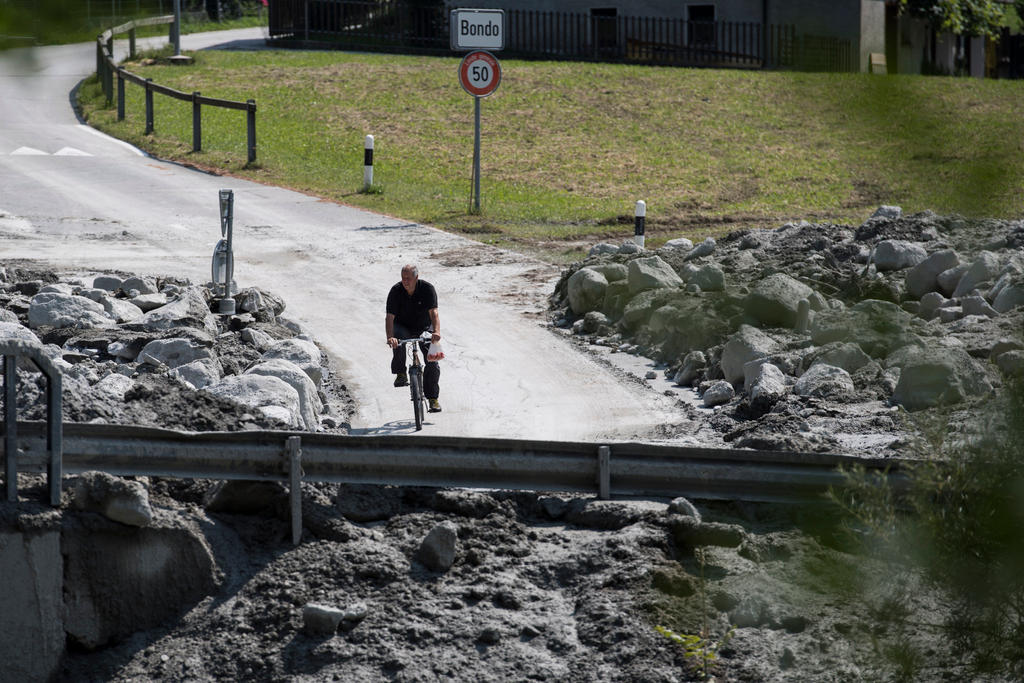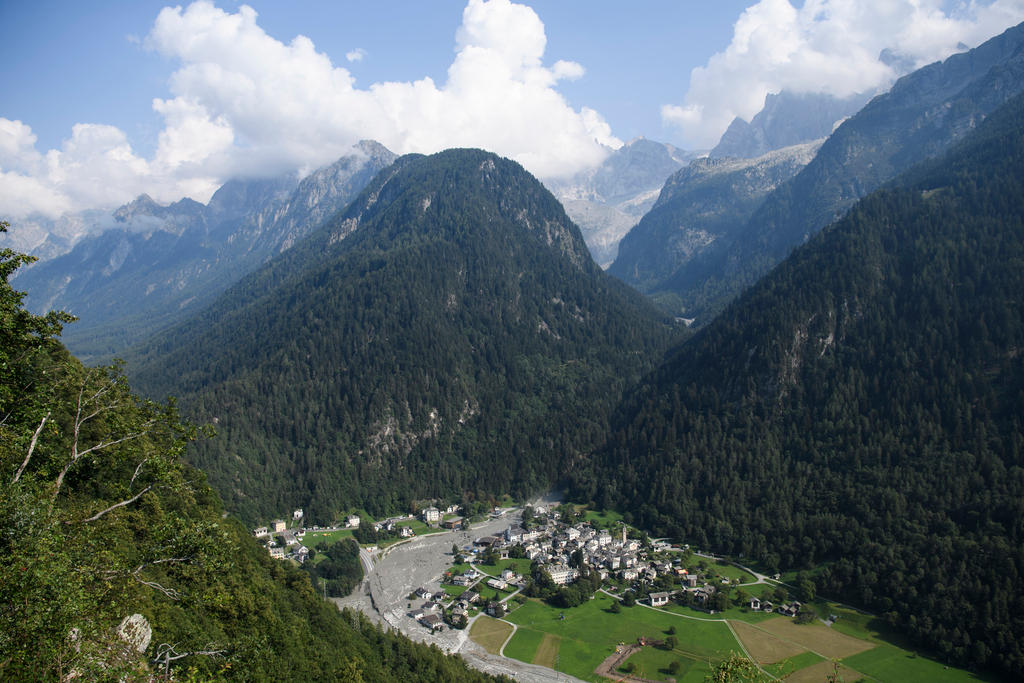Swiss must better prepare to ‘minimise climate change’ risks

The Federal Office for the Environment wants Switzerland to do more to prepare for climate change, as its impacts are already clearly visible – such as melting permafrost, which was partly responsible for the recent Bondo landslide.
According to the environment office, Switzerland has experienced an average temperature increase of 2% Celsius since record-keeping began in 1864 – over twice the world average of 0.9 degrees. Temperatures could rise by 1-3 degrees by 2060, the office predicts.
In a statement released on Monday, it said that climate change is having various impacts on the country, such as heatwaves in cities and localised water shortages. It’s also leading to unstable mountain flanks like the one that collapsed last week, causing a huge mudslide that buried part of the village of Bondo in canton Graubünden.
On August 23, four million cubic metres (140 million cubic feet) of rock came crashing down the mountain, resulting in a huge landslide that partly buried the small mountain village near the Italian border. At the weekend, officials called off a search for eight people missing since the landslide struck, acknowledging they were likely to be buried under millions of tons of rock.
Minimising risk
Environment director Marc Chardonnens said Switzerland must do more to deal with climate change.
“Switzerland should not only reduce greenhouse gases. It should also prepare for climate change to minimise risks,” Chardonnens told reporters.
He said increased temperatures did not only affect the environment, but also the economy and citizens throughout the country.
His office has launched a risk analysis with eight cantons to identify regional impacts of climate change. The results should be known at the end of 2017.
More joint efforts needed
In 2013, the federal authorities launched a pilot scheme comprising 31 projects to help Switzerland adapt to the changes. The projects focus on water shortages, natural dangers, ecosystems, land use, urban development, information-sharing and governance.
Following the severe 2003 summer heatwave, canton Ticino and several French-speaking cantons also introduced measures, which have successfully lowered mortality rates during periods of high temperatures.
Canton Basel Country has also examined how to manage water shortages and water temperature increases. It has developed special measures that encourage the use of rainwater and revitalise water courses.
But Chardonnens said more joint efforts are needed that bring together the cantons, regions, cities, communes, firms and individuals.
“The effects of climate change concern us all. We can only deal with these new challenges together,” he concluded.

In compliance with the JTI standards
More: SWI swissinfo.ch certified by the Journalism Trust Initiative












You can find an overview of ongoing debates with our journalists here . Please join us!
If you want to start a conversation about a topic raised in this article or want to report factual errors, email us at english@swissinfo.ch.